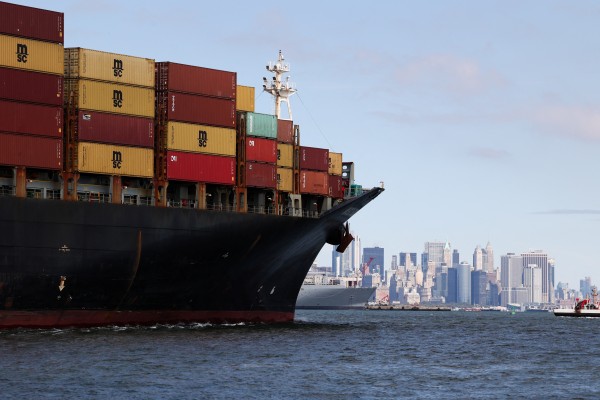U.S. East and Gulf Coast port workers are set to go on strike from Tuesday with no talks currently scheduled to head off a stoppage threatening to halt container traffic from Maine to Texas and cost the economy billions per day.
The labour contract between the International Longshoremen’s Association (ILA) union representing 45,000 port workers and the United States Maritime Alliance (USMX) employer group expires late Monday, with negotiations at an impasse over pay.
If workers at East and Gulf Coast ports strike on Oct. 1, manufacturing supply chains will be thrown into disarray. The Biden administration must step in to ensure we can keep the ports open and avoid disruptions to billions of dollars of goods that families rely on every day.… pic.twitter.com/1mG1VUQ7C9
— Jay Timmons (@JayTimmonsNAM) September 27, 2024
“All signs are that there will be a strike,” said Rick Cotton, executive director of the Port Authority of New York and New Jersey at a press conference on Monday.
He said the gates of the marine terminals will close at 5 p.m. ET (2100 GMT) and nearly 100,000 containers will remain stored at the port until the strike is ended. Another 35 ships are expected to arrive at the port over the next week and they will remain at anchor during the strike.
U.S. Chamber of Commerce President Suzanne Clark urged President Joe Biden to use his authority to prevent a walkout for 80 days saying it “would be unconscionable to allow a contract dispute to inflict such a shock to our economy.”
Biden said on Sunday he did not plan to intervene.
The White House said on Monday it was not considering using the federal Taft-Hartley Act, which would force workers to go back on the job while negotiations continue. Spokesperson Karine Jean-Pierre said the White House is encouraging all parties to come to the table and negotiate.
A port strike will go ahead starting Tuesday at 12:01 a.m. ET, the ILA said on Sunday. ILA said Monday the USMX “seems intent on causing a strike at all ports from Maine to Texas” because they have offered “an unacceptable wage package that we reject.”
USMX did not immediately comment.
If union members do walk off the job, it would be the first coast-wide ILA strike since 1977, affecting ports that handle about half of the nation’s ocean shipping.
No negotiations are taking place and none are planned before the Monday deadline, a person familiar with the matter said.
The union has previously said the strike would not impact military cargo shipments or cruise ship traffic.
But a strike could stop the flow of everything from food to automobiles at major ports, potentially jeopardizing jobs and stoking inflation weeks ahead of the U.S. presidential election.
New York Governor Kathy Hochul said the strike could impact things like automobile imports but said the state should not see any immediate impact on food suppliers or essential goods.
“We’re deeply concerned about the impact a strike could have on our supply chains, especially when it comes to critical goods like medical supplies and others,” Hochul said.
National Association of Manufacturers CEO Jay Timmons said a strike would throw manufacturing supply chains throughout the U.S. into disarray. “Billions of dollars of goods – from food to vehicles to electronics – rely on access to the East and Gulf Coast ports,” Timmons said.
A short strike could have a limited economic impact given many companies have imported extra goods ahead of a possible work stoppage or shifted more shipments to West Coast ports. But a strike that continues for weeks could have serious economic impacts.
“These people today don’t know what a strike is,” Harold Daggett, the ILA’s fiery leader, said in a recent video post. “I’ll cripple you. I will cripple you.”
For months, Daggett has threatened to shut down the 36 ports covered by his union if employers like container ship operator Maersk and its APM Terminals North America do not deliver significant wage increases and stop terminal automation projects.
An ILA strike could wedge labour-friendly President Joe Biden into a no-win position as Vice President Kamala Harris runs a razor-tight election race against former President Donald Trump.
(REUTERS)
In a career spanning three decades and counting, Ramananda (Ram to his friends) has been the foreign editor of The Telegraph, Outlook Magazine and the New Indian Express. He helped set up rediff.com’s editorial operations in San Jose and New York, helmed sify.com, and was the founder editor of India.com.
His work has featured in national and international publications like the Al Jazeera Centre for Studies, Global Times and Ashahi Shimbun. But his one constant over all these years, he says, has been the attempt to understand rising India’s place in the world.
He can rustle up a mean salad, his oil-less pepper chicken is to die for, and all it takes is some beer and rhythm and blues to rock his soul.
Talk to him about foreign and strategic affairs, media, South Asia, China, and of course India.





